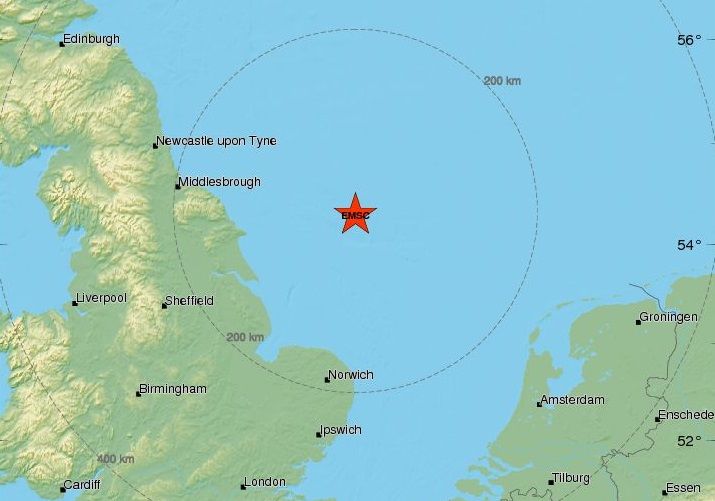An earthquake measuring 3.9 on the Richter Scale struck in the North Sea between Denmark and the UK last night.
The quake, which had an epicentre about 160 kilometres east of Scarborough in northeastern England, could be felt along the country’s eastern coast and led to minor damage.
READ MORE: Low on the Richter scale, but highly respected in the lab
Tremor of 2008
The largest in recent times took place in 2008 when a quake shook Denmark for about five seconds and could be felt in Copenhagen, Jutland and as far away as Bornholm.
Denmark is hit by five to ten earthquakes a year. Around 200 were registered in Denmark between 1929 and 2004.
The area most likely to have an earthquake is just off the Jutland ‘shoulder’ and in the Kattegat north of Zealand. Earth tremors, accordingly, are most likely to be felt in Thy in northwestern Jutland and in northern Zealand.
Most earthquakes in Denmark are not powerful enough to be felt by people, as their strength on the Richter scale is between 1.5 and 4.5, while the large earthquakes we know from abroad are typically between 6 and 8 on the scale.















